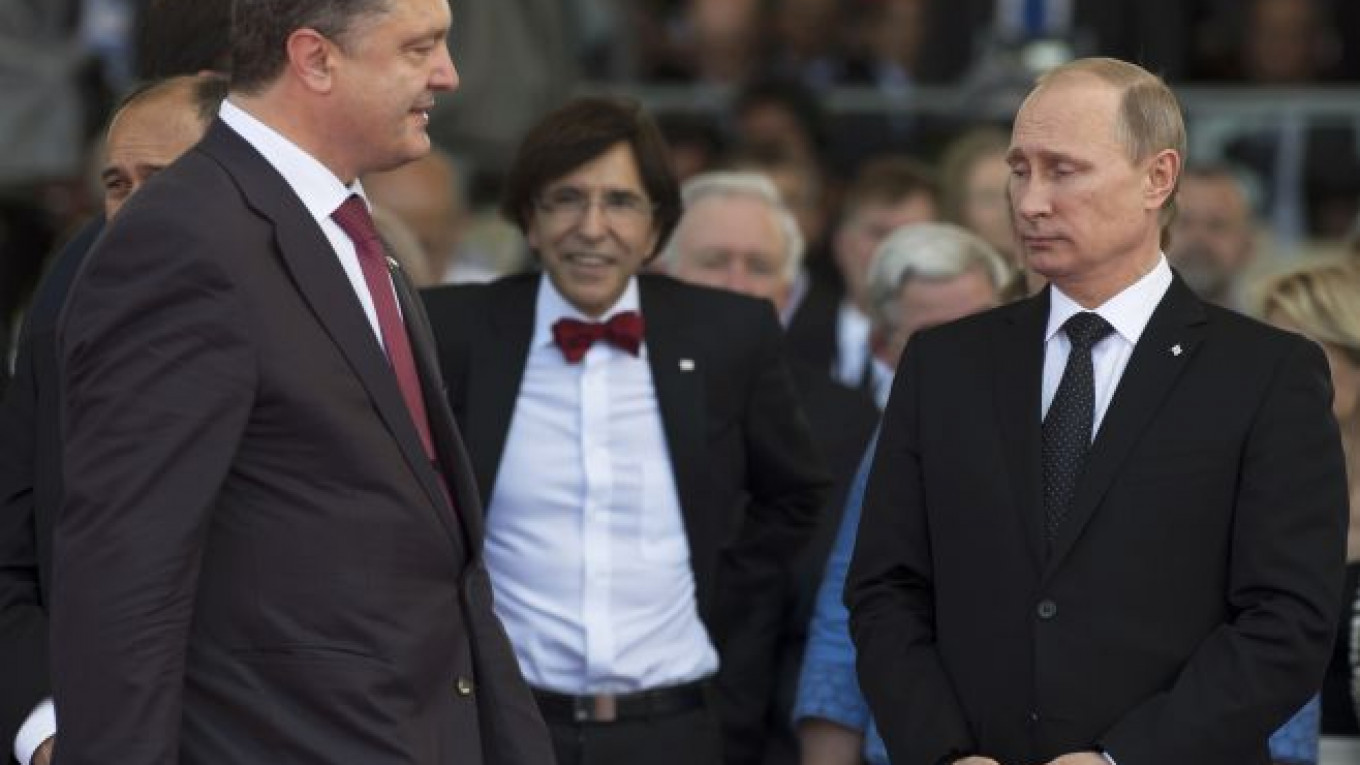Despite their rhetoric, Ukrainian President Petro Poroshenko and President Vladimir Putin need each other in order to save face as the cost of Russian military intervention or separatist defeat mount.
Putin's gambit to destabilize eastern and southern Ukraine and impose a Bosnia-style confederate system is failing. He also facing steep economic costs from Western sanctions against Russia.
Putin's problem is that the destabilized area in the east of Ukraine is too small — only about a third of the territory of the Donetsk and Luhansk regions. There is no separatist contagion in other regions of eastern and southern Ukraine. The concept of "Novorossia," the Russian imperial term for the region, has fizzled out.
Moscow also lacks credible leaders among the separatists to forge a viable political force in Ukraine's politics that would block its further drift toward the West. The Kremlin has been working with the officials of ousted President Viktor Yanukovych to forge a new pro-Russian party and set up factions in Ukraine's parliament guided by Putin's friend Viktor Medvedchuk and led by Nestor Shufrich, but progress has been elusive.
The Donetsk and Luhansk "People's Republics" cannot speak for the entire southeast, much less negotiate with Kiev on Ukraine's constitutional setup. Moreover, their most capable military units, the battalions — "Vostok" and "Oplot" — retain loyalty to Renat Akhmetov, now Poroshenko's ally. The "republics" are doomed.
Yet the separatists are Putin's assets to negotiate a face-saving exit. As long as they survive, Putin avoids a humiliating defeat. This could be done either through a Russian "peacekeeping operation," massive Russian resupply, or through a prolonged cease-fire under Western patronage. Putin is betting on the latter and has maneuvered into the position of Europe's partner in peacemaking. German Chancellor Angela Merkel and French President Francois Hollande shrewdly tossed him this face-saving off-ramp. The challenge now is to arrange for an integration of the "republics" and some of their leaders into Ukraine's political system.
Poroshenko should play along and ignore the pressure to win on the battlefield, despite having little room for maneuver on this issue. He cannot accept endless cease-fire negotiations and a de-facto pro-Russian statelet, but a military victory could be bloody and politically damaging. He may have to agree to a new, now genuine, referendum on the status of Donetsk and Luhansk regions, once the separatists are disarmed and the border with Russia secured. The separatists should be given a chance to defend their case in a free election without resort to arms. Working more closely together would be face-saving both for Putin and Poroshenko.
Vladimir Frolov is president of LEFF Group, a government relations and PR company.A Message from The Moscow Times:
Dear readers,
We are facing unprecedented challenges. Russia's Prosecutor General's Office has designated The Moscow Times as an "undesirable" organization, criminalizing our work and putting our staff at risk of prosecution. This follows our earlier unjust labeling as a "foreign agent."
These actions are direct attempts to silence independent journalism in Russia. The authorities claim our work "discredits the decisions of the Russian leadership." We see things differently: we strive to provide accurate, unbiased reporting on Russia.
We, the journalists of The Moscow Times, refuse to be silenced. But to continue our work, we need your help.
Your support, no matter how small, makes a world of difference. If you can, please support us monthly starting from just $2. It's quick to set up, and every contribution makes a significant impact.
By supporting The Moscow Times, you're defending open, independent journalism in the face of repression. Thank you for standing with us.
Remind me later.








